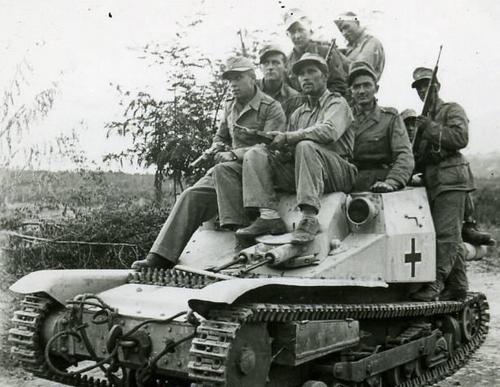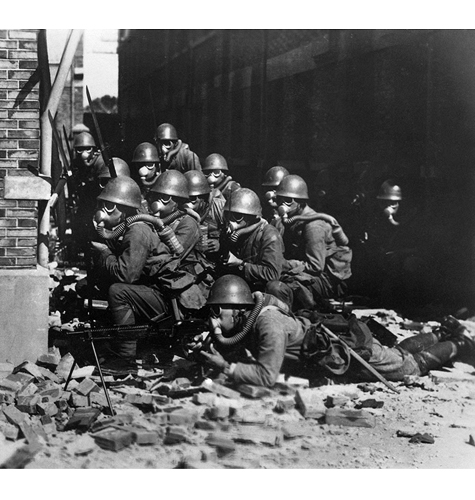Lebanon–Russia relations are the bilateral relations between Lebanon and Russia. Lebanon has an embassy in Moscow. Russia has an embassy in Beirut. Both states have cordial relations.
1820s to 1910s
Tsarist Russia tried to influence the region today known as Lebanon. After the Treaty of Adionople in 1829, Russia was the protector of the Greek Orthodox and the Armenian Church inside the Ottoman Empire. Russian diplomats tried to enhance the Russian influence in Lebanon and Syria together with the Ottoman authorities.
1940s to 1970s
The Soviet Union established diplomatic relations with Lebanon on August 3, 1944. Over the years, the two countries signed several agreements, including an agreement on trade and payments (April 30, 1954 and July 16, 1970), on air traffic (February 8, 1966), on cooperation in the tourism industry (June 8, 1970), on procedures for forwarding of diplomatic mail without the escort of diplomatic couriers (February 2, 1962, and February 15—22, 1971).
1980s
In 1985, fundamentalists from the Islamic Liberation Organization, an offshoot of the Muslim Brotherhood of Syria, kidnapped four Soviet diplomats. The KGB’s special branch Alpha Group was despatched to Lebanon and freed the hostages.
1990s
After the dissolution of the Soviet Union, Lebanon was one of the first states to recognize the Russian Federation as an independent nation in December 1991.
In March 1995 a Russian delegation led by the Russian Foreign Minister Andrei Kozyrev visited Lebanon. Both states signed a treaty on trade and economic cooperation. In the 1990s, Russia supported the implementation of the United Nations Security Council Resolution 425.
2000s
In 2004, the Permanent Representative of Russia to the United Nations, Andrey Denisov, abstained from the vote on United Nations Security Council Resolution 1559 in order to allow the UN urge Syria, a close ally of Russia, to withdraw all Syrian troops from Lebanon.
After the 2006 Lebanon War Russian troops were deployed to Lebanon for humanitarian purposes. They were not part of the United Nations Interim Force in Lebanon.[9][10] Even though Russian troops were not part of UNIFIL, Belarus and Armenia, two close military allies of Russia, contribute troops to this UN peacekeeping force.
After the Russo-Georgian War in 2008 and the Russian recognition of Abkhazia and South Ossetia, Saad Hariri announced that Lebanon would establish relations with those two Georgian break-away republics and could possibly establish diplomatic relations with those republics.
Additionally, in 2008 it was announced that Russia would gift 10 MiG-29 to Lebanon. A representative of Russia’s defense ministry said it was giving the secondhand MiG-29s to Beirut free of charge. The gift was supposed to be part of a defense cooperation deal that would have seen Moscow train Lebanese military personnel. The gift would have been the “biggest upgrade” of the Lebanese military since the end of the Lebanese Civil War. Due to the wishes of the Lebanese government, the deal was later changed into Russian helicopters.
In 2009, a Russian military delegation visited Lebanon in order to inspect the Lebanese military airports on their capability to host Russian MiG-29 fighter aircraft.
2010s
In 2010, Russian Prime Minister Vladimir Putin announced that Russia will be giving Lebanon a free, unconditional gift of arms and military supplies to strengthen the Lebanese Armed Forces. The package included six Mi-24 attack helicopters, 31 T-72 tanks, 36 130-millimeter artillery pieces and 500,000 shells to be used by the Lebanese artillery. Israeli journalists expected that Russia due to this delivery got the chance to send military consultants and instructors to teach the Lebanese how to use the new military equipment.
In political talks in the year 2010 Russian and Lebanese representatives discussed the possibility of building a number of gas-powered electricity plants in Lebanon, with Russian funding. They would have been connected to the Arab Gas Pipeline.
In April 2015 the head of the Russian Federal Agency on Technical Regulation and Metrology Alexey Abramov and Lebanon’s Trade and Economy Minister Alain Hakim, signed a cooperation protocol to boost the Russo-Lebanese bilateral economic and trade relations.
In 2018, representatives of Russia and Lebanon negotiated about a Russo-Lebanese agreement about the rights for the Russian Navy to use Lebanese ports. Joint exercises, counterterrorism cooperation and Russian trainers for the Lebanese military were also discussed.[22] Experts stated that the Lebanese government might seek a Russian troop presence on its soil due to overlapping claims with Israel about natural gas reserves in the Mediterranean Sea.
Lebanon-Russia trade relations
In 2013 bilateral trade exceeded $500 million, while Russia exports to Lebanon consist mainly of raw materials (oil and hydrocarbon products) and Lebanon provides Russia predominantly with agricultural products, primarily tobacco.
After the Russian counter-sanctions against the EU and NATO countries the Lebanon-Russia trade relations boosted. In 2014 Russian exports to Lebanon were estimated at $900 million.
Syrian Civil War
Due to the Syrian Civil War, Russia supports the Lebanese dissociation policy.
Lebanese domestic politics today
Russian politicians have cordial relations with several parties of the March 8 Alliance.
One political formation in line with Russian political interests in the Levante is the Syrian Social Nationalist Party in Lebanon, which holds two seats in the Parliament of Lebanon. The party was founded in 1932 by Antoun Saadeh, a Greek Orthodox Christian from just outside Beirut. Currently many SSNP members are Christian.
In December 2014 the Russian Deputy Foreign Minister, Mikhail Bogdanov, met the Head of the Syrian Social Nationalist Party, MP Assaad Hardan.
The Shi’ite Group Hezbollah is mainly equipped with Russian weapons. Additionally, Hezbollah is known to recruit members for its group in Russia.
With the beginning of the Russian military intervention in the Syrian Civil War, Hezbollah media claimed that Russian soldiers were coordinating their efforts with Hezbollah fighters in the course of the Syrian Civil War.
Hezbollah officials welcomed the Russian intervention in neighbouring Syria.
According to roumors, Russian soldiers and Hezbollah fighters have established common operations rooms in Latakia and Damascus.
Russia does not consider Hezbollah to be a terrorist organization and supplies the group with weapons
Foreign players looking out for their own interests
Recently a large number of Russian commentators have attempted to find the “hand of the West” behind every large-scale, overseas, anti-governmental movement and an example of yet another “color revolution.” It is clear that the outburst in Lebanon has a primarily “internal” explanation.
However, Lebanon’s geographic situation in the Middle East and the Eastern Mediterranean automatically means that any internal political disorder in this western Middle Eastern country will be used to its full extent by foreign players.
For many years after the end of the Cold War, Lebanon was the conflict zone between Syria and leading western countries such as the U.S. and France. Incidentally, these countries are key trade partners for the Lebanese state. The political situation in Lebanon is extremely confused and fragmented.
If Shiite parties, in particular Hezbollah, are orientated towards Tehran and Damascus, then the majority of the “Sunnite bloc,” in its turn, is focused on the West and the “oil monarchies” of the Persian Gulf. At least 41 percent of Lebanon’s population are unified in Christian communities, there is serious political segregation concerning events in Syria.
However, deep divisions on this issue occurs even among Lebanese Muslims: Hezbollah units are known to be fighting on the side of the Syrian government, while many Lebanese Sunnis are in rebel groups fighting against the Syrian regime.
Added to this is the large number of problems Lebanon has from Palestinian and Syrian refugees, as well as the penetration of ideas and militants from the Islamic state, it is clear that any political destabilization in this small country will necessarily affect the overall balance of power in the greater Middle East and, seemingly, it will lead to even more explicit intervention from foreign players in internal Lebanese affairs.
http://www.russia-direct.org/opinion/what-kremlins-interest-lebanon-crisis
Pubblicazione gratuita di libera circolazione. Gli Autori non sono soggetti a compensi per le loro opere. Se per errore qualche testo o immagine fosse pubblicato in via inappropriata chiediamo agli Autori di segnalarci il fatto è provvederemo alla sua cancellazione dal sito









